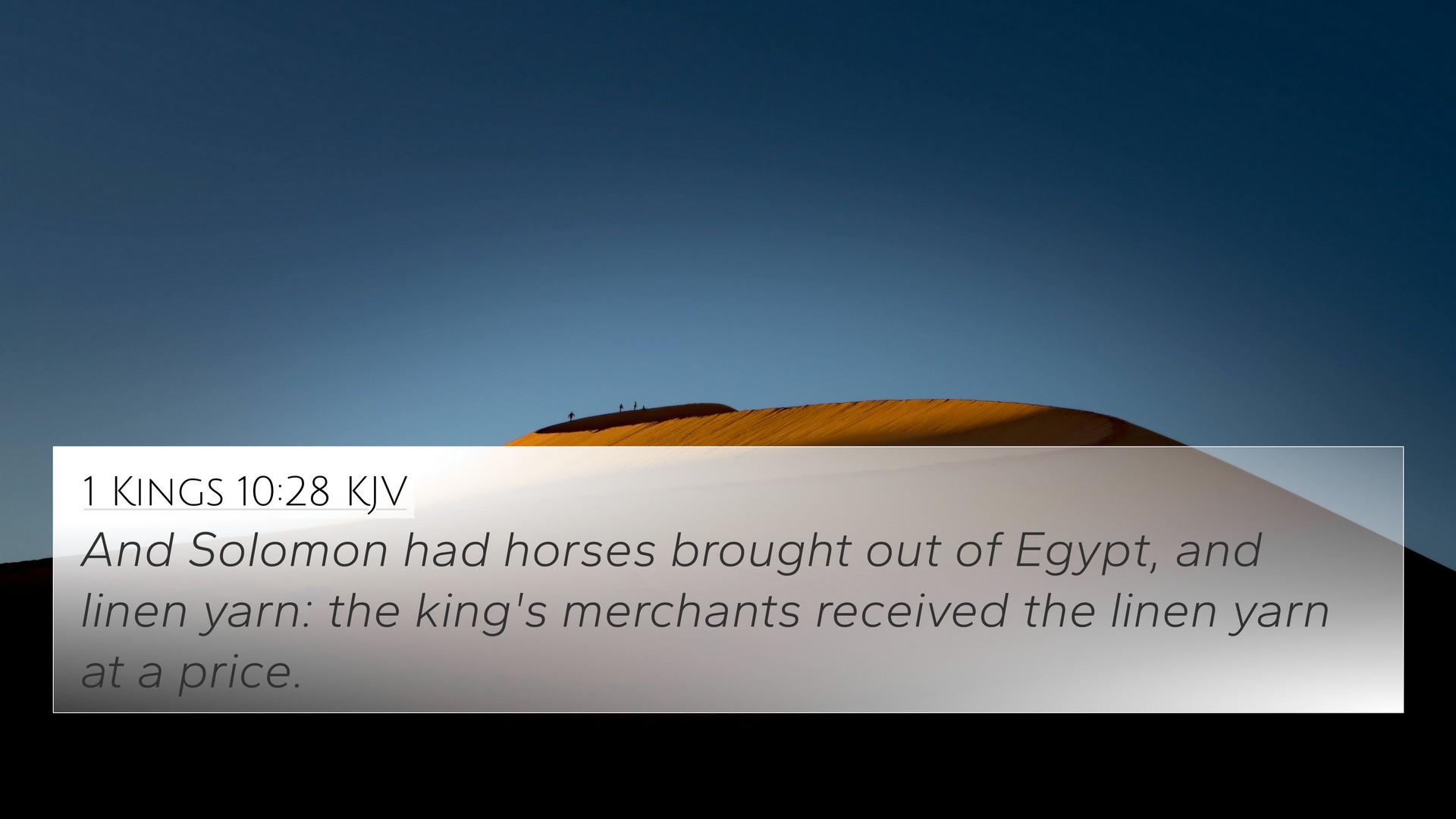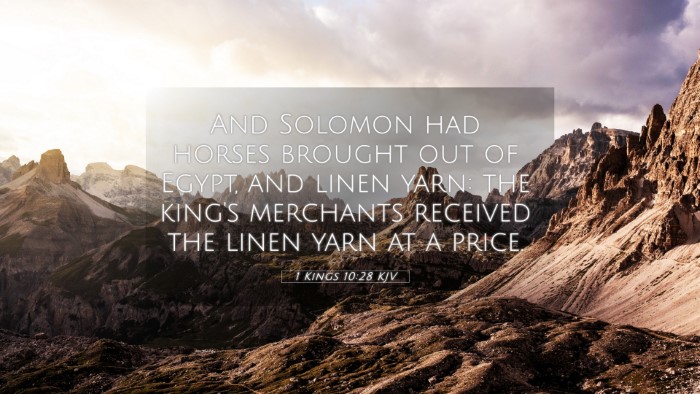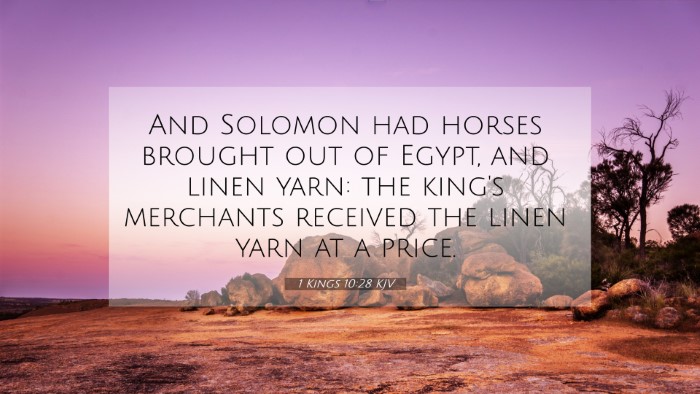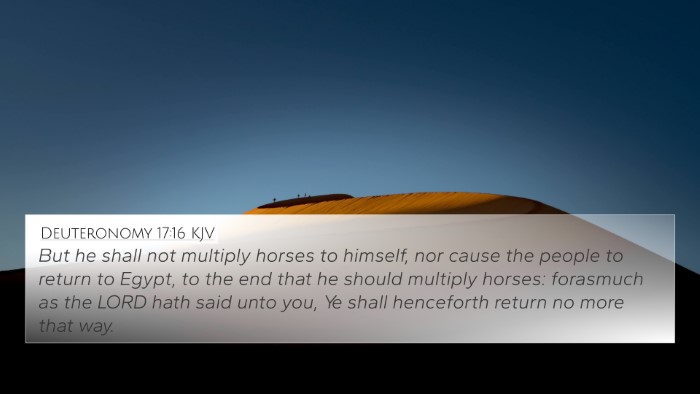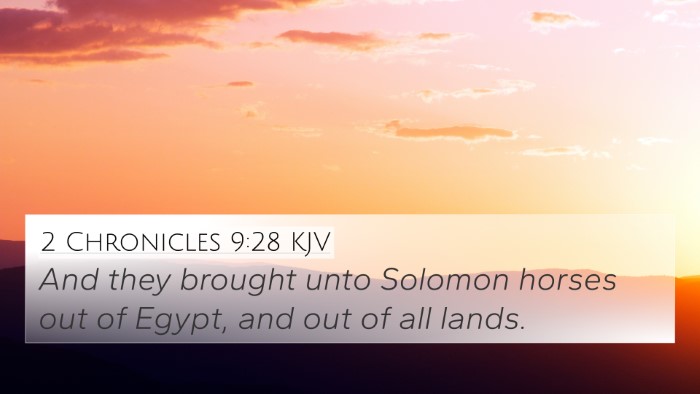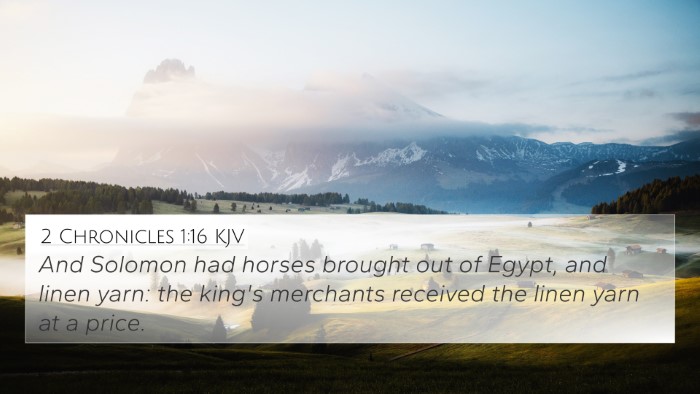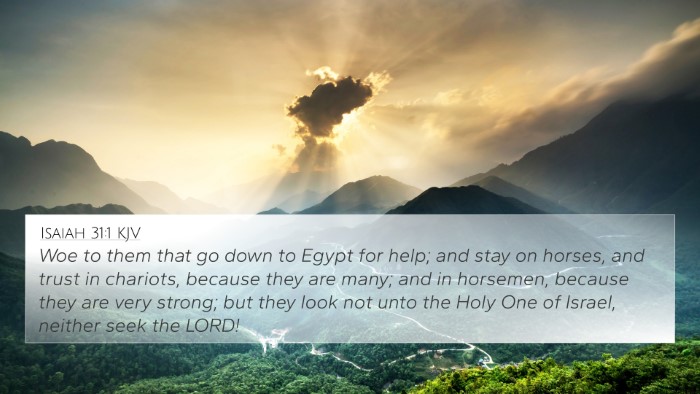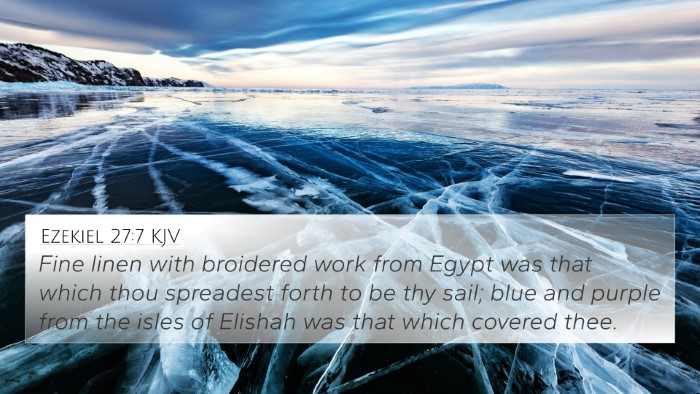Understanding 1 Kings 10:28
Verse: 1 Kings 10:28 - "And Solomon had horses brought out of Egypt, and linen yarn; the king's merchants received the linen yarn at a price."
Summary of the Verse Meaning
This verse depicts King Solomon's extensive trade operations, highlighting his wealth and the international relations he cultivated. The mention of horses and linen yarn signifies the luxurious commodities that were essential to the status of the monarchy in ancient Israel. This transactional relationship with Egypt underscores the interconnectedness of kingdoms during his reign.
Insights from Public Domain Commentaries
Matthew Henry's Commentary
Matthew Henry elaborates on Solomon's trade activities, suggesting that importing horses from Egypt is indicative of the wealth and power he possessed. He notes that Solomon's merchants were skilled in their dealings, reflecting the advanced economy during his reign. The emphasis on horses serves not only a military purpose but also symbolizes royal prestige.
Albert Barnes' Notes
Albert Barnes focuses on the significance of Solomon taking horses from Egypt, relating it to the prophetic warnings against returning to Egypt for assistance (Deuteronomy 17:16). He highlights that Solomon's reliance on foreign commerce diverges from the ideal dependence on God. The acquisition of linen yarn further illustrates the luxurious lifestyle that was characteristic of Solomon's rule.
Adam Clarke's Commentary
Adam Clarke notes that the mention of linen yarn indicates Solomon's engagement in trade for items that were not only practical but also held aesthetic and cultural value. He posits that the horses were probably intended for the chariots, enhancing the military capabilities of Israel. Clarke emphasizes the overall implications of this trade, reflecting the broader political and cultural exchanges of the time.
Related Bible Verses
- Deuteronomy 17:16 - Discusses the prohibition against Israelite kings acquiring many horses.
- 1 Kings 10:25 - Mentions the great wealth and splendor of Solomon’s court and clergy.
- 2 Chronicles 9:28 - Provides parallel insight into Solomon’s trade and wealth.
- Isaiah 31:1 - Warns against relying on Egypt for assistance in times of trouble.
- 1 Kings 10:22 - Notes the abundance of trade goods coming to Solomon, including exotic animals.
- Psalm 20:7 - Reflects on the futility of placing trust in chariots and horses over God.
- Numbers 24:22 - Reflects on Israel’s relations with surrounding nations, including Egypt.
Connections Between Bible Verses
This verse draws interesting connections with several other scriptures, highlighting both the thematic and narrative parallels within the Bible:
- Military and Political Relationships: 1 Kings 10:28 connects with 2 Chronicles 1:14, where Solomon gathers a significant military force and resources.
- Wealth and Luxury: Proverbs 8:18 speaks of riches and honor that stem from wisdom, which Solomon is known for.
- God’s Provision: Philippians 4:19 refers to God providing all needs, implying that despite Solomon’s extensive trading, true provision comes from God alone.
Thematic Bible Verse Connections
The theme of wisdom leading to prosperity is prevalent in Solomon's story and connects various scriptures:
- Proverbs 3:16-18 - The benefits of wisdom regarding wealth and life.
- Ecclesiastes 2:26 - Vanity of gaining riches apart from God’s acceptance.
Scriptural Cross-Referencing Techniques
To fully appreciate the depth of 1 Kings 10:28, it's beneficial to employ cross-referencing techniques. Here are some tools for effective cross-referencing:
- Bible Concordance: An invaluable resource to find related verses and themes.
- Bible Cross-Reference Guide: A structured approach to explore connections between different scriptures.
- Cross-Reference Bible Study: A method to identify thematic links between passages.
- Bible Chain References: Following interconnected themes throughout the Bible.
Conclusion
1 Kings 10:28 offers a snapshot of a prosperous yet complex period in Israel's history under Solomon. The nuances of trade, reliance on foreign powers, and the implications of such actions resonate throughout biblical text, steering believers to reflect on the conditions of their own trust and reliance on God versus worldly means. As explored above, a comparative analysis with other scriptures enhances our understanding and invites deeper contemplation of God's provision and intended direction for His people.
